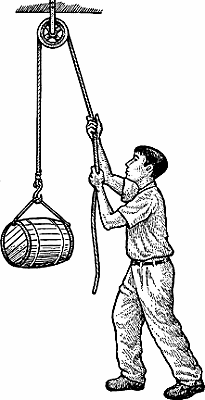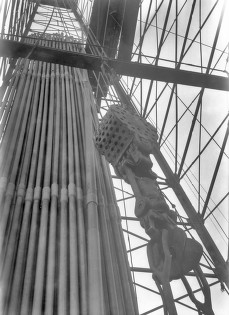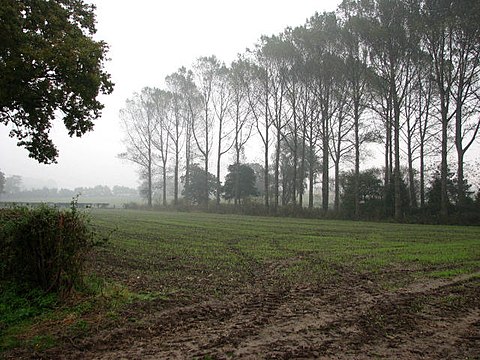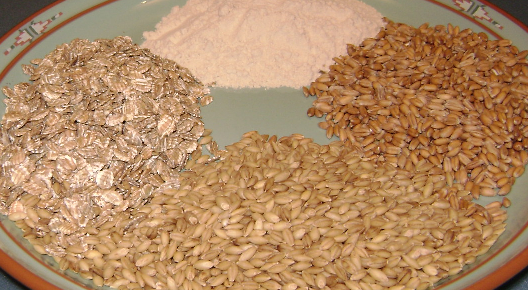Problem
Java
enjoy algorithms
https://www.enjoyalgorithms.com/blog/sort-linked-list-using-insertion-sort
1 | /** |
Submission Detail
- Accepted
- Runtime 18ms Beats 63.20% of users with Java
- Memory 42.99mb Beats 90.09% of users with Java
https://www.enjoyalgorithms.com/blog/sort-linked-list-using-insertion-sort
1 | /** |
by Peter Wolfe
Often people ask me what is new
in mathematics, in your view?
Have mathematicians become astuter?
Not really, they’ve just learned to use the computer.
We have all kinds of new hardware
to help us with the load we bear
so now when we want to solve an equation
we just head for the nearest workstation.
Whatever the mathematical task,
whatever question you care to ask,
we can give you the answer then and there
if only we have the right software.
We now have Suns, Apollos and VAX’s
(all paid for with your taxes)
and the software we receive
can do some things you wouldn’t believe.
Inverse a matrix? It’s a snap.
Iterate the Henon map.
Any large integer we can factor
or show the world a strange attractor.
In now takes hardly any time
for the number theorists to find a prime.
The topologists program for the purpose
of making pictures of some strange surface.
The numerical analysts are having a ball.
Computing’s their business, after all.
They are happy to use what they know
to show the rest of us the way to go.
There’s lesson here that’s quite instructive.
The finite element group is more productive.
They all do more than they ever did
using a computer generated grid.
Then there are dynamics boys
who are going wild with their new toys.
They use computer graphics to get
color pictures of a Julia set.
Their computations are so exact they’ll
reveal patterns which are clearly fractal.
They can now shock and dismay us
with even more exmaples of chaos.
So I would say there’s no dispute.
Mathematicians must learn to compute.
Computers have changed the rules of the game
and mathamatics will never be the same.
by Andrea Perry
What will the weather reporter predict?
I wonder what she will say.
Will Wednesday or Thursday be warmer — or wet?
Will winds blow us away?
Can we water ski this weekend?
Can we walk to watch the tide?
Or will we need our woolens
if we wish to play outside?
from Phonics Through Poetry: Grade Prek-1


Use sunscreen to prevent sunburn.

She’s training to be a paramedic.


secret communications written in cipher
a cipher that can’t be decoded
She doesn’t want reporters snooping into her personal life.
No, I didn’t read your e-mail. I’m no snoop.
snub an old acquaintance
She snubbed me in the hallway.
He snubbed their job offer.

I read her obituary in the newspaper.
People who live along the coast are being evacuated as the hurricane approaches.
unravel a mystery
Scientists are still unraveling the secrets of DNA.
She has impeccable taste in music.
spoke impeccable French
Seeing her father again when she was an adult was an epiphany that changed her whole view of her childhood.
The flowers exuded a sweet fragrance.
Pine trees exude a sticky substance.
the penultimate chapter of a book
the penultimate syllable of the word
Rule 54: Breakfast like a king, lunch like a prince, dinner like a pauper. - Michael Pollan, Food Rules: An Eater’s Manual
The goal is not to make Putin a pauper. - Los Angeles Times, 3 Mar. 2022
paupers on welfare

using landfill to dispose of trash
delved into her handbag in search of a pen
He tried to delve inside his memory for clues about what had happened.
the book delves into the latest research

The woods are filled with skunks, raccoons, and other critters.


by John McCrae

In Flanders Fields, the poppies blow
Between the crosses, row on row,
That mark our place; and in the sky
The larks, still bravely singing, fly
Scarce heard amid the guns below.
We are the dead. Short days ago
We lived, felt dawn, saw sunset glow,
Loved and were loved, and now we lie,
In Flanders fields
Take up our quarrel with the foe:
To you from failing hands we throw
The torch; be yours to hold it high.
If ye break faith with us who die
We shall not sleep, though poppies grow
In Flanders fields.
it’s a sin to waste food
bless me, Father, for I have sinned

a chocolate milkshake

James Harris Simons is an American mathematician, billionaire hedge fund manager, and philanthropist.
a genuinely funny movie
The audience was genuinely moved by the performance.
We are genuinely grateful to still have our jobs.
When a passing tanker rescued them five days later, both men were genuinely sorry that they had to leave. - Lesson 12 Life on a desert island, New Concept English Book 3

a nail punctured the tire
a bland smile
bland diet
a bland oil
the bland climate of the southern coast
The vegetable soup was rather bland.
teaching our children to be good stewards of the land
stewardship of natural resources
she believes that stewardship of the environment is everyone’s responsibility


Costco food court
by Joyce Kilmer
No longer of Him be it said
“He hath no place to lay His head.”
In every land a constant lamp
Flames by His small and mighty camp.
There is no strange and distant place
That is not gladdened by His face.
And every nation kneels to hail
The Splendour shining through Its veil.
Cloistered beside the shouting street,
Silent, He calls me to His feet.
Imprisoned for His love of me
He makes my spirit greatly free.
And through my lips that uttered sin
The King of Glory enters in.
by Joyce Kilmer
I think that I shall never see
A poem lovely as a tree.
A tree whose hungry mouth is prest
Against the earth’s sweet flowing breast;
A tree that looks at God all day,
And lifts her leafy arms to pray;
A tree that may in Summer wear
A nest of robins in her hair;
Upon whose bosom snow has lain;
Who intimately lives with rain.
Poems are made by fools like me,
But only God can make a tree.

The car slid off the road and almost hit a group of pedestrians.
pedestrian traffic
the Freudian paradigm of psychoanalysis
lucid writing
a concordance of Shakespeare’s plays
the funnel cloud of a tornado
He washed the dishes and then rinsed them thoroughly.
I rinsed my face in the sink.
Repeat this step as necessary until all the soap suds are gone.
There’s a problem with the car’s ignition.



The weather forecast calls for some sort of frozen precipitation tomorrow—either snow or sleet.
a 50 percent chance of precipitation

Yes, it’s raining, but it’s only a drizzle.
It was beginning to drizzle, so she pulled on her hood.

The snow turned to sleet and made driving very dangerous.
Ice pellets (Commonwealth English) or sleet (American English) is a form of precipitation consisting of small, hard, translucent balls of ice.
felt a draft

The boat was damaged in a strong gale.
She opened the door and felt a cold blast.
a cold blast of air

The drought caused serious damage to crops.
breezy beaches
a breezy day

the dimples on a golf ball
She noticed his dimples when he smiled.
how a massive object, such as the sun, causes a local dimple-like curvature of spacetime. – Relativity, a very short introduction, by Russell Stannard
a baby’s dimpled hands

Archery at the Summer Olympics

the course is a prerequisite for advanced study

She took a second job to augment her income.
The money augmented his fortune.
Heavy rains augmented the water supply.
We compost leaves in our backyard.
While mulches and compost are slow-release fertilizers, liquid feeds release nutrients for a much quicker uptake to give plants a boost.
determinate tomato plants
a determinate period of time
a determinate answer

When I was growing up, I had a nanny.
During this time, Mi Li says a confinement nanny, called a yuesao, comes to live with the family.
a story that reaffirmed her belief in the goodness of humanity
reaffirmed her debt in order to keep her car
reaffirming the defendant’s innocence
Engineers can build their network and get inspired during dedicated meetups, hackathons, sessions and lightning talks.
the injection left a small stab on her upper arm
He stabbed her with a dagger.
Stabbings at University of Waterloo send 3 to hospital, 1 person in custody
an old-fashioned work ethic
professional ethics
Bill Gates is quiet and bookish, but apparently unfazed by others’ opinions of him: he’s an introvert, but not shy.
A spider was creeping along the bathroom floor.
Age creeps up on us.
The children were each assigned different household chores.
Doing taxes can be a real chore.

we’ll need a new buggy if we have another baby
the engine stalled and kept juddering